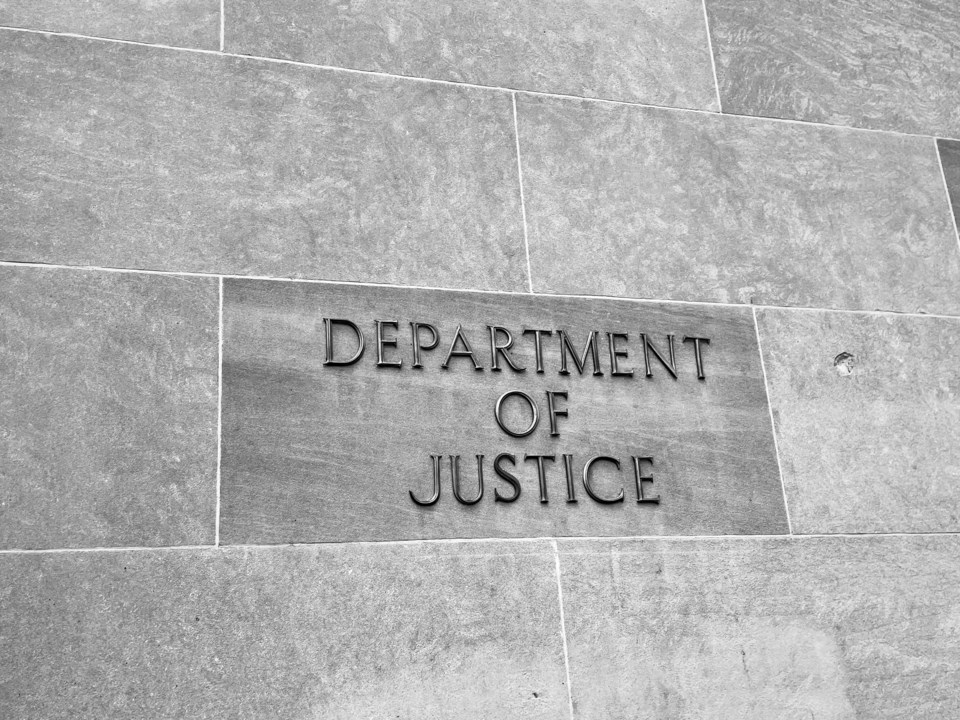The vice-president of the Alliance of Iranian Canadians said charges against three men announced Monday by a U.S. court confirm long-held beliefs about the Iranian government’s foreign interference operations, but it “maximizes the amount of terror people feel.”
“A lot of people in the Iranian community or intelligence might know that the regime uses proxies, but now we have the proof and that's very significant,” said Ram Joubin, who is a lawyer in Burnaby. “There’s many things we can learn from this, the use of proxies, how savvy this could be. They’re hiding behind a professional.”
The unsealed indictment from a grand jury in the U.S. District Court for Minnesota charged 49-year-old Naji Sharifi Zindashti, an Iranian drug lord who collaborates with Iran’s Ministry of Intelligence and Security (MIOS), and Canadians Damion Patrick John Ryan, 43, and Adam Richard Pearson, 29. The U.S. alleges Zindashti hired full-patch Hells Angel Ryan who then hired Pearson as part of a $370,000 murder-for-hire scheme targeting two unnamed Maryland residents.
Ryan and Pearson are in custody on unrelated charges. Zindashti is in Iran. The indictment said they communicated on encrypted smartphones from Vancouver’s Sky Global. The FBI shut down the company and charged its CEO and top distributor with racketeering in March 2021.
The charges announced Monday coincided with the first day of public hearings for the year-long Public Inquiry into Foreign Interference in Federal Electoral Processes and Democratic Institutions. Commissioner Marie-Josee Hogue is focusing on China, Russia and India, but Joubin hopes Canadians will learn more about how Iran meddles in Canadian politics.
“We don't hear a lot about Iran and foreign interference, we hear mostly about other countries,” he said. “More recently, Iran and India have come a little bit more into the mainstream, the news cycle, but really, we're just scratching the surface of the Iranian influence in Canada.”
Joubin is part of a group that has identified more than 700 people living in Canada who are linked to the Iranian regime. Many of them are involved in money laundering, embezzlement or other security threats.
“The [federal government’s] rhetoric in the last year has been ‘oh, we already did everything we should have, we already imposed the sanctions’,” Joubin said. “It’s proven over and over that the sanctions didn't work, because we get all these people being found in Canada who have a high profile. So how did they get in?”
The Canadian government has sanctioned 248 Iranian entities, including the MIOS, and 194 individuals. The recently released list of Named Research Organizations includes 12 Iranian institutions that are not to receive Canadian funding due to national security risks.
Unlike the U.S., Canada has not declared the Islamic Revolutionary Guard Corps (IRGC) a terrorist organization. The U.S. National Counterterrorism Center describes the IRGC as the “Iranian state’s armed force charged with defending Iran’s revolutionary regime” and is separate from the conventional military force. Canada did, in 2012, list the IRGC Qods Force, the external operations branch of the central command, which assists other terrorists like Hamas, Hezbollah, Taliban and Popular Front for the Liberation of Palestine.
Joubin said the solutions need to be forward-looking and that could include stronger immigration legislation. He said nothing is safe from Iranian government infiltration, even mosques, and other countries have been more aggressive in countering transnational repression. Last November, authorities in Germany raided 54 locations related to the Islamic Center Hamburg.
Hogue faces a May deadline for her interim report and end of year for the commission’s final report. In her opening statement, she said her goal is to “uncover the truth, wherever it may be.”
“I will make every effort to get to the bottom of things and understand what the country has faced and what it may still be facing in terms of foreign interference,” Hogue said. “Foreign interference in our democratic institutions is a very serious issue. It requires us to investigate, analyze and reflect as thoroughly as possible in order to ultimately identify the best ways to counter it. Or, if it's not possible to prevent it entirely, to limit its effects.”



